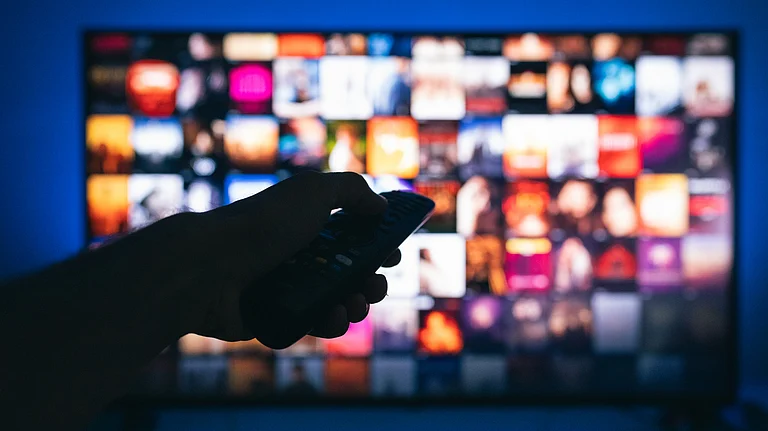
SEBI curbs influencer misconduct amid rising financial misinformation on social media.
Deepfake-related cybercrime rises 550%, fuelling fake endorsements and consumer fraud.
Draft IT amendments seek mandatory disclosure for AI-generated audio and visuals.
The Securities and Exchange Board of India (SEBI) stepped in early this year to curb the self-proclaimed “She Wolf of the stock market” from dispensing financial advice on social media. The influencer had been promoting specific funds while systematically siphoning off a significant amount for personal gains. This case is just the tip of the iceberg highlighting consumer vulnerability in the rapidly expanding influencer economy. Social media algorithms have built echo chambers that reinforce consumer beliefs, making them easy targets for influencers who value engagement over accuracy. As the influencer marketing industry races towards $665.33mn by 2030, deepfakes and misinformation are blurring the lines between what is real, what is sponsored and what is entirely fabricated.
Social Media And The Vulnerable Consumer
India’s predominantly young consumer base comprises of digital natives who spend a large part of their day on social media. Influencers now play a key role in shaping what consumers buy, watch and believe, as they are seen as more relatable and authentic than traditional celebrities. The credibility and reputational capital of influencers give them significant power over consumer decisions, including those relating to money or health. While some influencers genuinely champion consumer well-being and provide responsible advice, a growing number of self-styled experts chasing clicks and engagement have emerged. In the race for virality, many of them resort to half-truths, misinformation and even deepfakes. Adivasi Hair Oil remains promoted by several influencers who disseminate unsubstantiated claims about hair growth and other purported benefits. The Advertising Standards Council of India (ASCI) does exercise its authority in certain cases to curb misleading communication. For instance, Sugar Cosmetics was called out by ASCI and asked to modify influencer content that contained unsubstantiated claims.
However, the rapid development of technology and accessibility to generative AI (artificial intelligence) tools has also fuelled a surge in deepfake-related cybercrime in India. A 2024 report by Pi Labs estimated a staggering 550% rise in deepfake fraud. These AI-generated synthetic images, videos or audio clips distort reality. In the influencer economy, they are misused to mimic identities, voices or endorsements without consent. Some influencers experiment creatively with synthetic content, while others exploit it to manipulate audiences and drive virality. Recent incidents highlight the scale of this problem, with deepfakes being misused to create false financial endorsements, targeting prominent figures such as Finance Minister Nirmala Sitharaman, NSE CEO Ashishkumar Chauhan, and actress Rashmika Mandanna. Duplicitous actors now use social engineering to impersonate brands or influencers, to promote scams or investment schemes and cause consumer harm. Consequently, consumers risk mistaking influence for insight, highlighting the urgent need for stronger regulation and accountability to safeguard influencer authenticity.
Unchecked Influence, Unprotected Consumers: A Case for Stronger Regulation and Consumer Literacy
India’s regulatory landscape is fragmented with multiple authorities overseeing different aspects of the digital ecosystem. Consumer protection is handled by the Central Consumer Protection Authority (CCPA), privacy and online misinformation fall under the Information Technology Act and the Digital Personal Data Protection Act, 2023 (DPDP Act). Advertising and influencer marketing are overseen by ASCI, food influencers must follow FSSAI rules, and financial influencers are regulated by SEBI. ASCI also mandates the use of labels to identified sponsored content (e.g. #ad, #sponsored). In contrast, the Indian Influencer Governance Council (IIGC) is a self-regulatory body that provides guidelines for responsible endorsements and consumer protection. However, it currently lacks any real enforcement power. This gap between statutory regulation and voluntary oversight leaves emerging threats like deepfakes in a grey area, highlighting the urgent need for stronger, coordinated regulation.
The government has been taking recent steps to address these challenges. The Ministry of Electronics & Information Technology (MeitY) has published a draft amendment to the Information Technology Rules, 2021 which requires synthetically generated content to be labelled. The amendment requires all synthetic audio and visual content to be labelled and watermarked. Social media platforms that host this content should act as gatekeepers and be accountable for compliance. The draft is currently open for industry feedback and would be finalised shortly.
Towards a Safer, Transparent and Accountable Influencer Ecosystem
While these measures strengthen platform accountability, India can also draw lessons from global practices to build a more comprehensive framework. The European Union treats content regulation as part of broader systemic oversight, addressing issues like dark patterns and algorithmic transparency under a single umbrella, while China enforces heavy penalties on platforms that fail to check misinformation. By combining clear regulations with robust platform accountability, India can protect consumers without stifling innovation, fostering a safer and more trustworthy digital ecosystem. Digital literacy campaigns, designed in conjunction with public policy experts, can help users critically evaluate influencer content, identify misinformation, and navigate online platforms safely.
Yet the stakes are high. India’s influencer economy is expanding fast, and without effective regulation, misleading endorsements and AI-generated content could weaken consumer trust and the stability of the digital marketplace.
Prof. Angeline Gautami Fernando is the Associate Professor – Marketing and Program Director (PGDM) at Great Lakes Institute of Management.
The views expressed in this article are personal and do not represent the opinions or positions of any institution or organisation with which the author may be affiliated.





























